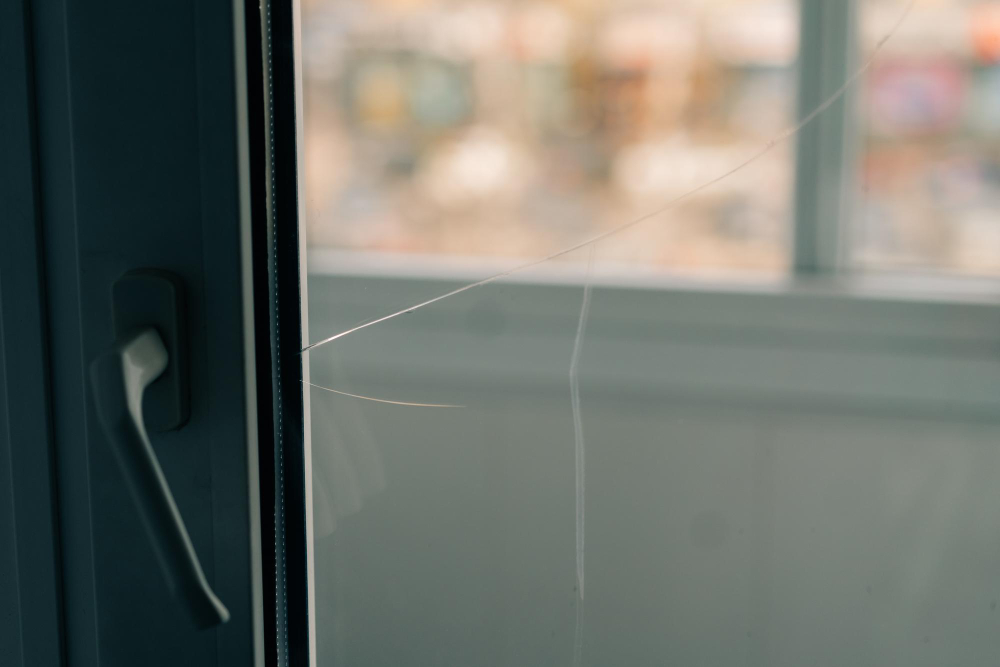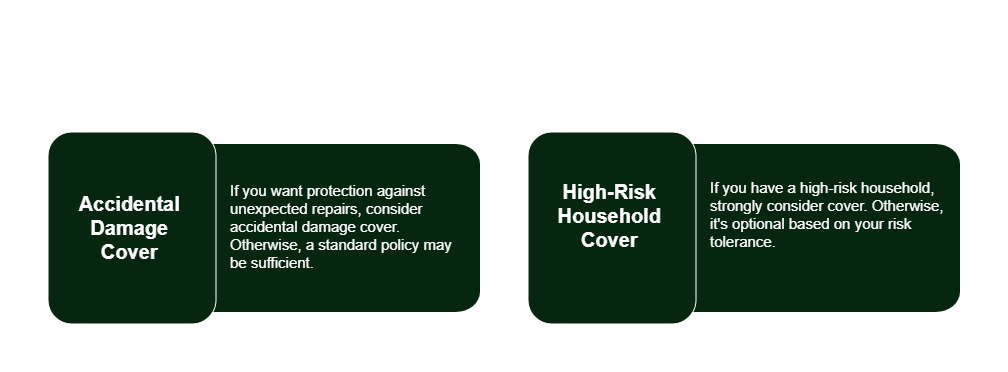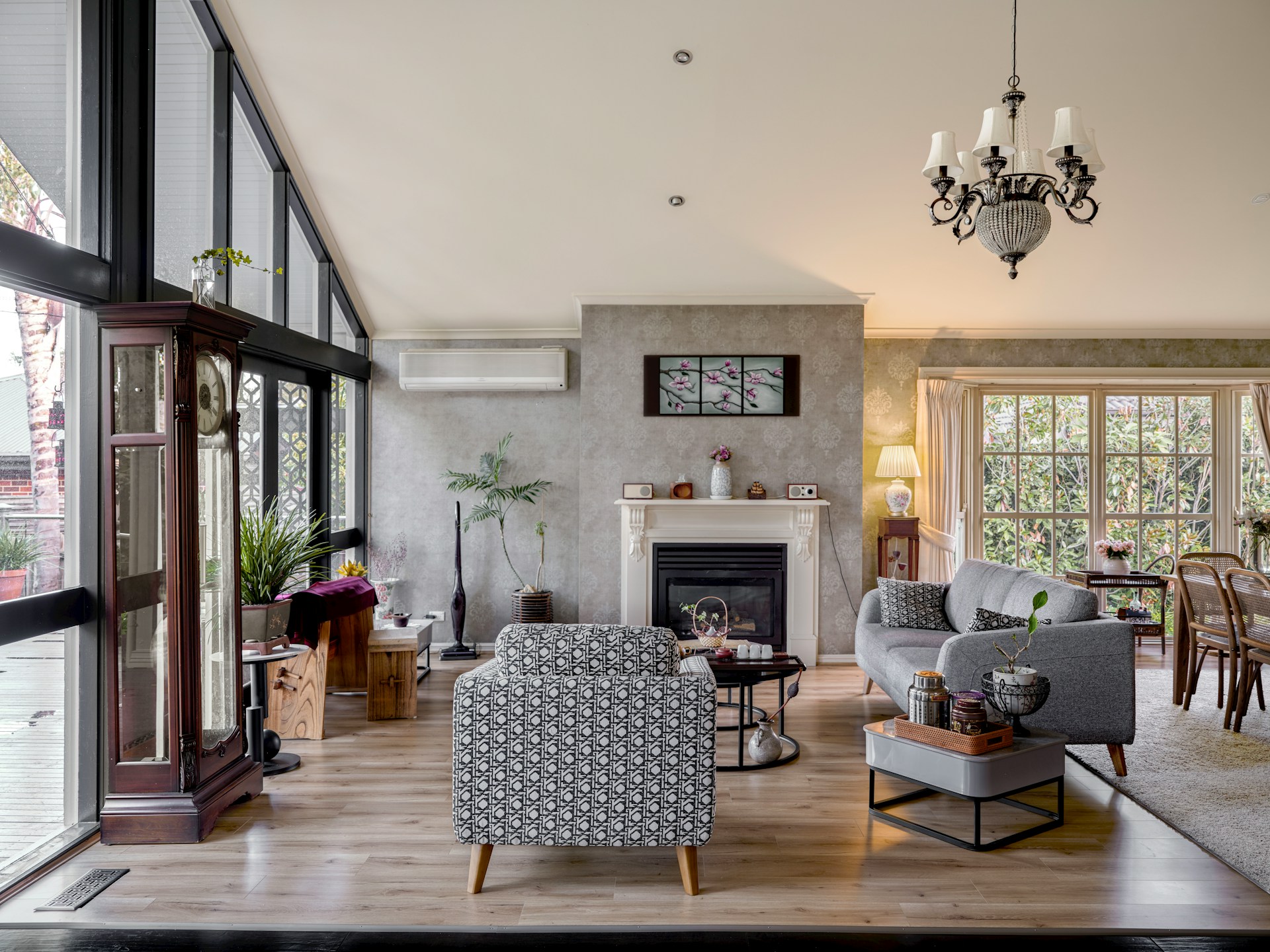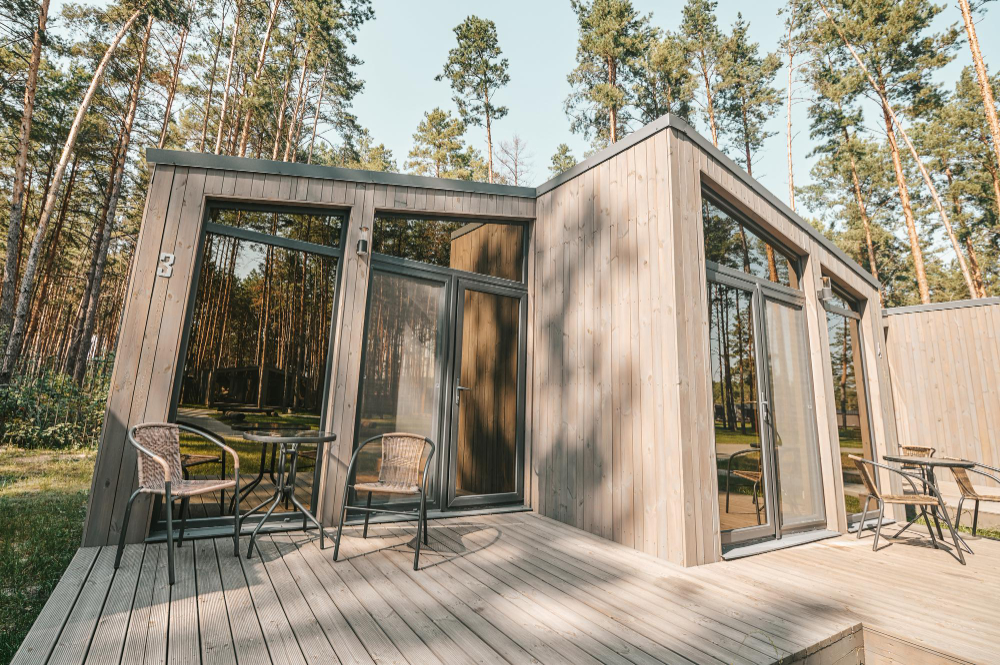.jpg)
Do I Need Accidental Damage Cover for Building Insurance?
Accidents in the home are common and can be unexpectedly costly. Whether it’s a DIY mishap, a broken window or a cracked sink, these incidents often fall outside standard buildings insurance.
At rivr, we offer high value buildings insurance that includes accidental damage cover as standard so you are protected against everyday mishaps without paying for cover you do not need.
Before deciding if it is right for your home, here are the key things to know:
What is accidental damage cover?
Accidental damage cover is an optional add-on to your buildings insurance that protects you from the cost of sudden, unexpected incidents, such as a football through the window, a DIY mishap, or a cracked bathroom sink.
Household accidents are common and can lead to costly repairs without accidental damage coverage. It’s different from standard buildings cover, which typically covers risks like fire, flood, or theft, but not everyday accidents that can catch you off guard.
Adding accidental damage coverage increases your home insurance premiums, but without it, homeowners must pay for repairs or replacements out of pocket.
The excess for accidental damage cover could be around £250, so it’s important to weigh the additional cost against potential replacement costs if something goes wrong.
What does accidental damage cover on buildings insurance include?

Accidental damage insurance does not cover loss or damage caused by poor design or workmanship, as well as those caused by vermin or insects are usually excluded from cover. Many insurers exclude damage caused by pets chewing furniture or other household items.
Real-life claim examples
- DIY disaster: Drilling into a wall and hitting a water pipe, causing flooding.
- Everyday accident: Football breaking a window or glass door.
- Clumsy moment: Dropping a heavy object and cracking a bathroom sink.
- Unexpected impact: Car accidentally crashing into a garden wall.
- Kitchen mishap: Fire damaging countertops and appliances.
- Red wine spill: Staining a fitted carpet or built-in fixture.
- Solar panels damage: Falling tree branch cracks your solar panels.
Accidental damage claims account for about 28% of total home cover claims, making them one of the most frequent types of claims made. Providing evidence that the damage was accidental is essential for successful claims, and many insurers allow up to 180 days to make an accidental damage claim.
Should I add accidental damage cover?
Ask yourself:
- Do you have young children or pets?
- Do you do a lot of DIY or home improvements?
- Would you struggle to pay for major repairs or replacement costs out of pocket?
- Is your home fitted with valuable or unique fixtures?
- Do you want peace of mind against unexpected repair costs?
If you answered “yes” to any of these, adding accidental damage cover could be a wise move. Without accidental damage cover, you’ll need to pay for fixing damage or arranging replacements yourself.

- Want protection against unexpected, costly repairs?
- Yes: Consider accidental damage cover
- No: Standard policy may suffice
- Have a high-risk household (kids, pets, frequent DIY)?
- Yes: Strongly consider cover
- No: Optional, based on your risk tolerance
Who should consider accidental damage cover?
- Families with children or pets (household accidents are more likely)
- DIY enthusiasts
- Homeowners with high-value fixtures or unique features
- Anyone wanting peace of mind from unexpected damage
Buildings vs. contents accidental damage
Most home insurance policies don’t include accidental damage cover as standard—it’s often an optional extra, especially for buildings insurance. Pet damage is usually excluded unless specifically stated in your policy.
General wear and tear is not covered, only sudden, unintentional events.
rivr's contents insurance includes accidental damage cover as standard, so your personal possessions are already protected from everyday mishaps. To fully protect your home, you can optionally add accidental damage cover to your buildings insurance for structural coverage too.
If you want to ensure both your home and belongings are protected, combining buildings and contents cover provides more complete peace of mind.
How to make a claim for accidental damage
- Contact your insurer as soon as possible after the incident.
- Provide details and evidence (photos, receipts, a clear description).
- Follow your insurer’s claims process for assessment and settlement.
Providing evidence that the damage was accidental is crucial for accidental damage claims. If a claim is disputed and unresolved, it can be taken to the Financial Ombudsman Service.
Many insurers allow up to 180 days to make an accidental damage claim, but check your policy wording for specific timeframes. Claims can be disputed if the insurer rejects them, so keep records of all communications and evidence.
Is accidental damage cover worth it?

- Weigh the annual extra cost against what you’d pay to fix a major accident or cover replacement costs.
- Consider your household’s risk profile, kids, pets, regular DIY, or valuable fixtures increase your risk.
- Check your policy excess and claim limits, as these affect what you’ll actually get back if you need to claim. The excess for accidental damage cover could be around £250.
- Accidental damage claims are often the most frequent type of home insurance claim, so being fully covered can make a big difference.
Some home insurance policies include a basic level of accidental damage cover, but full protection is usually an optional extra. Always check your policy documents or speak to your provider to confirm what’s included. If you want more cover, you can add accidental damage insurance at renewal or sometimes mid-term.
What’s the average claim amount for accidental damage?
The average claim is about £615 in the UK, but this varies depending on the type and extent of damage. Claims for structural repairs, permanent fixtures, or solar panels damage can be much higher.
Can I add accidental damage cover at any time?
Most insurers let you add accidental damage cover when you take out a policy or at renewal. Some will let you add it mid-term. Contact your insurer to check. See Rivr Cover’s home insurance for flexible options.
Do I need accidental damage cover on buildings insurance?
If you want to avoid unexpected repair bills from life’s little accidents, accidental damage cover is a smart add-on.
It’s especially valuable for busy households, DIYers, or anyone with valuable fixtures. Review your needs, check your current insurance policy, and consider the risks you face.
Remember, accidental damage claims are frequent, and being fully covered means you won’t have to worry about paying out of pocket for fixing damage or replacement costs.
For more details on what’s covered and how to compare policies, visit the Association of British Insurers (ABI).
Conclusion
Accidental damage cover offers valuable protection against life’s unpredictable mishaps, helping you avoid unexpected repair or replacement costs that standard buildings insurance won’t cover. If you have a busy household, enjoy DIY, or simply want greater peace of mind, adding this cover could be a smart move for your home.
rivr: cover for those with more to protect

rivr is a digital-first insurer built for high-value homes, offering flexible cover tailored to your lifestyle. Accidental damage protection is available across both buildings and contents insurance, and with our combined home policy, you get comprehensive all-risks cover in one seamless plan. We givie you peace of mind against life’s unexpected mishaps.
This article is for guidance only. Always read your policy wording and speak to your insurer for tailored advice.
Read more
Frequently asked questions
Yes. Accidental damage cover is already included as part of rivr’s comprehensive policy for buildings, contents, fine art and valuables. You’re protected against sudden, unexpected damage such as breakages or spills, without needing to add it separately.
Yes. Accidental damage is included as standard, giving all-risks protection for your contents whether at home or abroad.
It depends on the cost of repairs compared to your excess. Small claims may not be worthwhile if they’re close to the excess or could affect your renewal premium. For major incidents, a claim is usually the right step.
Accidental damage means sudden, unexpected physical damage caused unintentionally. Examples include knocking over a TV or drilling through a pipe.
Accidental damage insurance usually excludes wear and tear, pet damage, poor workmanship, and any deliberate or negligent acts.
Accidental damage refers to unexpected physical harm to your home’s structure or fixtures, for example, broken windows, cracked basins, or drilled pipes.




.jpg)
